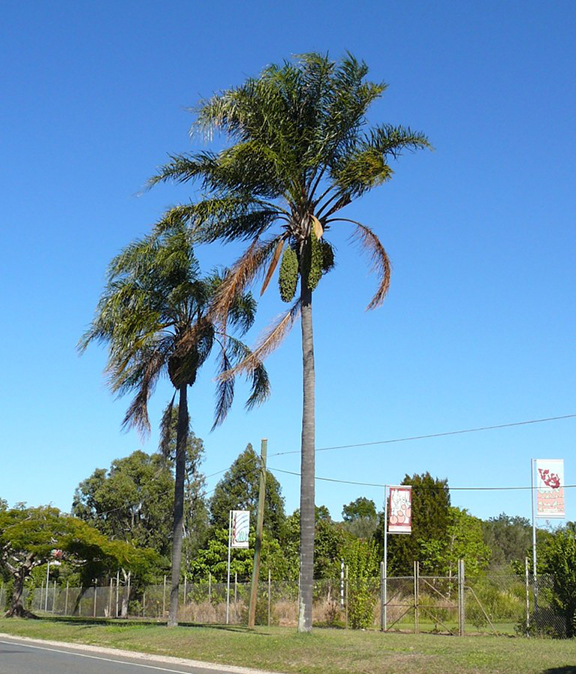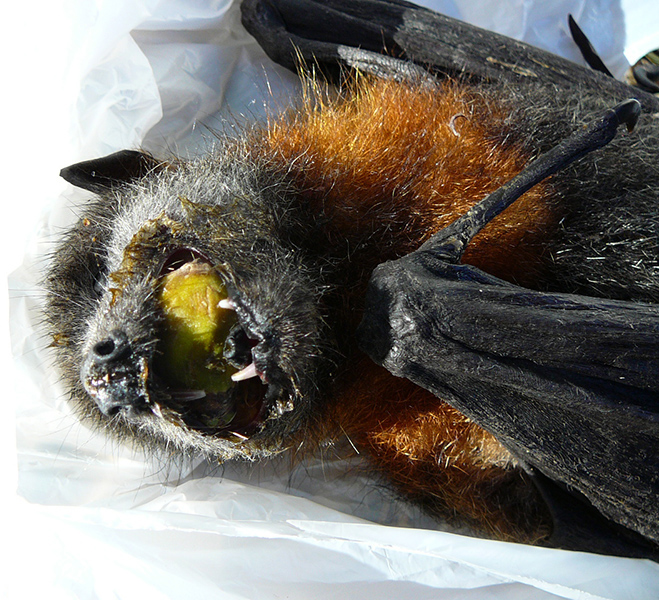Invasive weeds


Invasive weeds are becoming more and more problematic as they invade our bushland, parks and gardens.
The fruit of weeds such as the Wild Tobacco plant, Sheena’s Gold, Privet, Mock Orange and many other introduced species are consumed by flying-foxes but the worst weed is the Cocos or Queen Palm. Growing up to 20 metres tall this messy palm produces massive numbers of seeds borne on long drooping stems and unfortunately, flying-foxes have learnt to harvest this fruit to their detriment.
Widely used in the 1970s as a hardy landscaping palm, the Cocos Palm is a considerable hazard to flying-foxes and affects flying-foxes and our environment in a number of ways.
- Flying-foxes have learnt to come to the ground to eat the dropped fruit. They then become vulnerable to attack from domestic pets. Our rescue service is testament to the number of dog attacks each year which are almost always fatal for the bat.
- By poisoning when unripened green seeds are eaten during times of hunger.
- Toes and thumbs can get trapped in the woody flower sheaths causing self-mutilation and eventual death.
- Flying-foxes can be caught in the fibrous matter produced at the junction of the leaves and trunk and they can become fully cocooned and unable to escape.
- Bats can get cocos seeds caught behind their canine teeth, resulting in a slow death from starvation.
- The continuous rolling of hard cocos seeds causes premature wearing of the teeth.
- Flying-foxes do a great job of seed dispersal but they carry cocos seeds back to their roosting colony and bushland, contributing to the spread of cocos palms
How you can help
You can remove all cocos palms, cut off seed panicles and rake up dropped fruit.
Cocos Palms – No Palm No Harm
For more information please follow see below:


